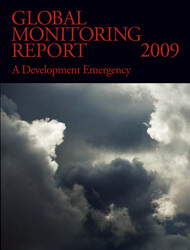
Chile: Technical Assistance Report-Strengthening Systemic Liquidity Management
Chile: Technical Assistance Report-Strengthening Systemic Liquidity Management
READ MORE...
Volume/Issue:
Volume 2025
Issue 048
Publication date:
ISBN:
Add to Cart by clicking price of the language and format you'd like to purchase
Available Languages and Formats
Topics covered in this book
This title contains information about the following subjects.
Click on a subject if you would like to see other titles with the same subjects.
Finance , Investments and Securities-General , Emergency lending assistance , Market support programs , Chile , , repo market development , market functioning , I , BCCh program , BCCh lending operation , I , financial market landscape , liquidity credit line facility , Lender of last resort , Collateral , Financial sector stability , Liquidity , Securities , Global
Summary
This report evaluates four key areas that significantly impact the efficiency and resilience of Chile's financial sector, offering targeted recommendations for improvement. These areas are central bank collateral policy, emergency liquidity assistance, systemwide market support programs, and the development of the repo market. The BCCh should introduce a collateral framework with eligibility criteria, valuation procedures, and risk mitigation measures, differentiating between collateral for monetary policy operations and ELA/systemwide support. An Emergency Liquidity Assistance framework should be established, with internal procedures and transparency measures. The BCCh should create an internal ELA Working Group to ensure preparedness and efficient decision-making by standardizing a request letter, an ELA master agreement, and funding templates. It should also develop the ELA policy parameters, including duration, interest rate, and potential conditionality. In addition, the BCCh, CMF, and MoF should establish a Crisis Management Group to ensure clarity about their respective roles. During the social unrest and COVID-19 pandemic of 2019–20, the BCCh implemented effective measures to stabilize core markets. Future systemwide support programs should adhere to key principles: discretionary intervention triggers based on market indicators, pricing to encourage initial take-up and facilitate exit, preference for temporary operations to limit risks, and transparency to ensure effectiveness and accountability. The report highlights the legal, regulatory, taxation, accounting, and infrastructure issues constraining repo market activity. These span multiple government agencies and the private sector. The BCCh should coordinate with relevant stakeholders to formulate a comprehensive medium-term market development strategy to address these challenges.
Copyright © 2010 - 2026
Powered by:
AIDC



